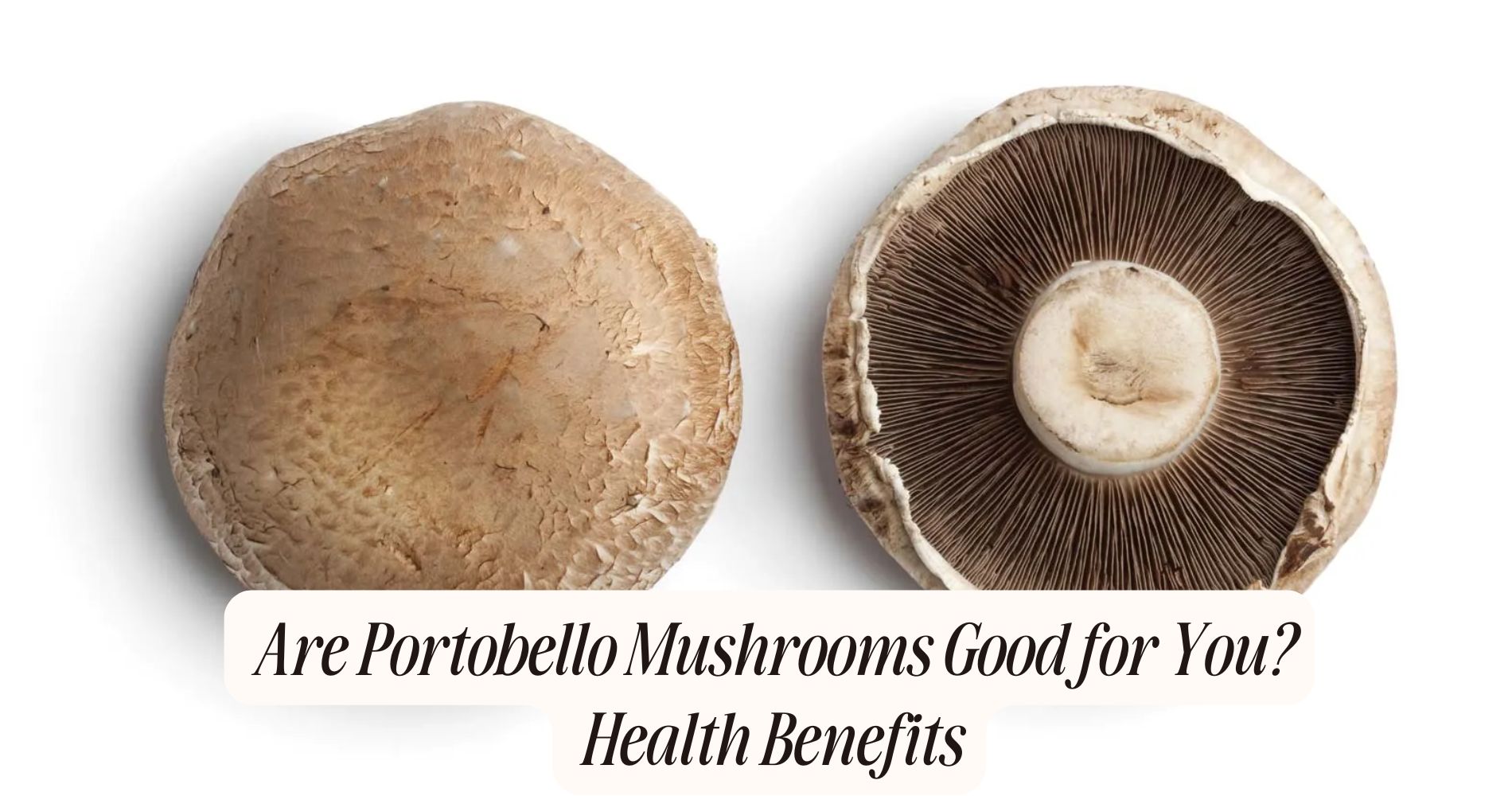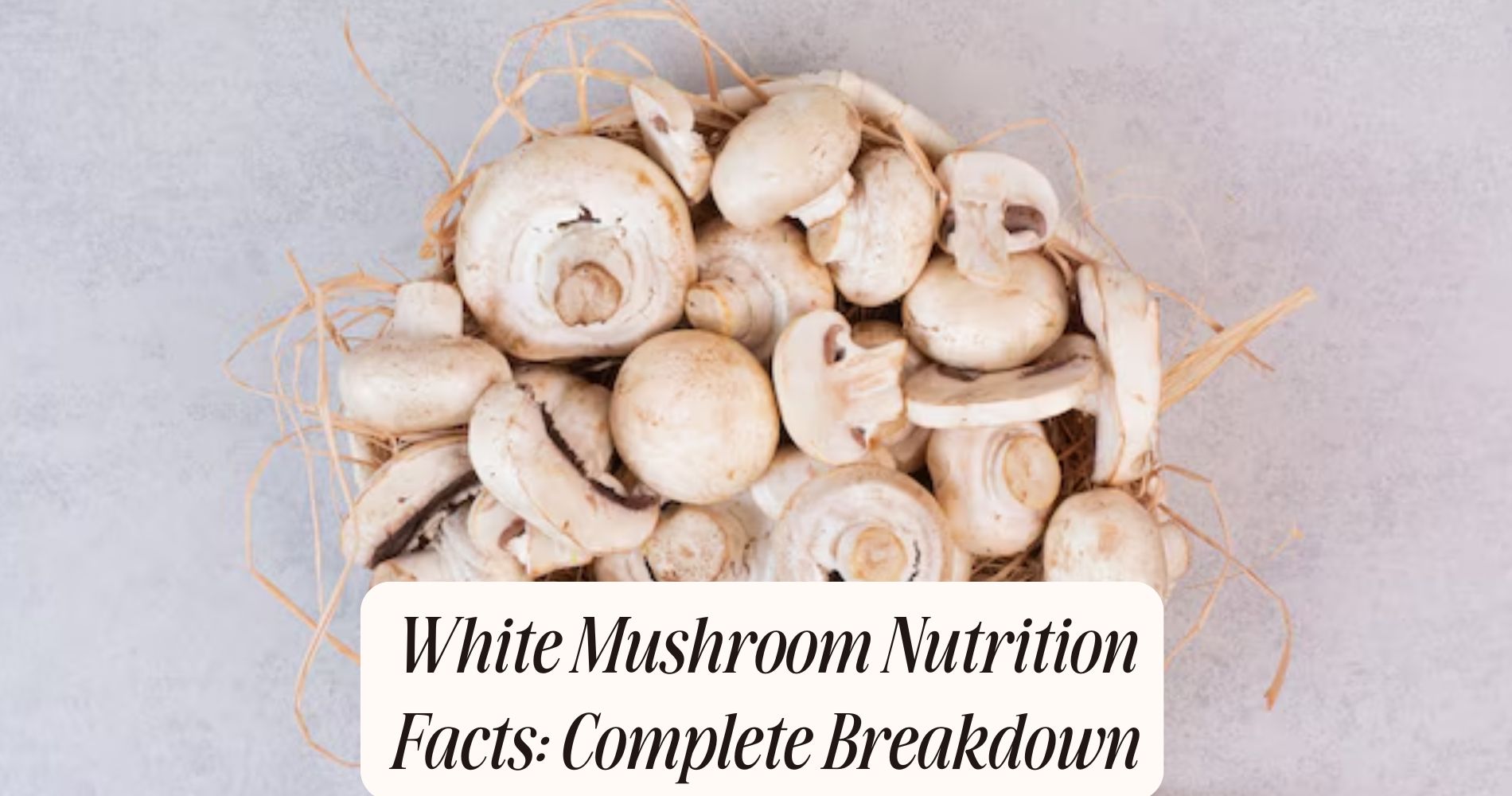
Are Mushrooms a Laxative? Benefits and Risks
Are mushrooms a laxative? Mushrooms can support digestive health due to their fiber content, which may help promote regular bowel movements. They contain both soluble and insoluble fiber, enhancing digestion and potentially offering mild laxative effects for some people. However, moderation is key; overconsumption can lead to gastrointestinal distress, such as bloating and gas. Different mushroom varieties may provide unique benefits without overwhelming your digestive system. As you consider incorporating mushrooms into your diet for their digestive advantages, you'll find that understanding individual responses and best practices can further enhance their benefits for your overall health.
Nutritional Profile of Mushrooms
Mushrooms are a nutritional powerhouse that can enhance your diet in several ways. With numerous mushroom varieties available, each type boasts unique flavors and nutritional profiles. For instance, shiitake mushrooms are rich in B vitamins, while portobellos provide a hearty texture and are low in calories. This diversity allows you to incorporate mushrooms into various dishes, making them a versatile ingredient in your culinary repertoire.

Mushrooms are also a source of essential nutrients, including antioxidants, which may help combat oxidative stress. They contain important minerals such as selenium, potassium, and copper, which support heart health and immune function. Additionally, most mushroom varieties are low in fat and cholesterol-free, making them an excellent choice for those looking to maintain a healthy diet.
When you explore different culinary uses, consider adding mushrooms to stir-fries, salads, or soups. Not only do they enhance the flavor of your meals, but they also contribute valuable nutrients.
Fiber Content and Digestive Health
Incorporating fiber-rich foods into your diet is essential for maintaining digestive health, and mushrooms can play a valuable role in this aspect. Various mushroom varieties, such as shiitake and portobello, are rich in both soluble and insoluble fiber. Soluble fiber helps to soften your stool, making it easier to pass, while insoluble fiber adds bulk to your stool, promoting regular bowel movements.
Moreover, mushrooms contain compounds that may enhance the activity of digestive enzymes. These enzymes are vital for breaking down food in your digestive system, ensuring nutrients are absorbed efficiently. When you consume mushrooms, you're not only benefiting from their fiber content but also potentially improving your overall digestion.
However, it's significant to mention that the fiber content varies among different mushroom varieties. While some might offer a higher fiber content, others may be less effective in promoting digestive health.
To reap the benefits, consider incorporating a mix of mushroom types into your meals. This diversity can help you achieve a balanced intake of fiber, supporting your digestive system and overall well-being.
Types of Mushrooms and Their Effects
Exploring the various types of mushrooms reveals their unique effects on digestive health and overall wellness. You'll find that both medicinal mushrooms and culinary varieties play distinct roles in your diet.
For instance, shiitake and maitake mushrooms, commonly used in cooking, are rich in fiber and can support gut health. Their fiber content helps maintain digestive regularity, potentially easing constipation for some individuals.
On the other hand, medicinal mushrooms like reishi and lion's mane offer different benefits. Reishi is known for its anti-inflammatory properties, while lion's mane may promote cognitive function and gut health.

These mushrooms contain compounds that could enhance gut microbiota, which is crucial for overall digestive wellness.
While culinary mushrooms primarily focus on flavor and texture, their health benefits shouldn't be overlooked. Incorporating a variety of mushrooms into your meals can boost your nutrient intake while potentially supporting digestive health.
However, it's important to approach mushroom consumption with balance and moderation, as individual reactions can vary. Always consult a healthcare professional if you're considering medicinal mushrooms for specific health concerns.
How Mushrooms May Aid Digestion
Mushrooms can play a significant role in supporting your digestive health.
Their high dietary fiber content promotes regular bowel movements, while they also help nourish your gut microbiome.
Additionally, the hydration mushrooms provide can aid in digestion, making them a beneficial addition to your diet.
Dietary Fiber Content
Packed with dietary fiber, mushrooms play a significant role in supporting digestive health. You might be surprised to learn that different mushroom varieties, such as shiitake and portobello, offer various fiber content, making them excellent additions to your diet. This fiber acts as a bulking agent, helping to move food through your digestive system more efficiently.
Mushrooms aren't just low-calorie fiber sources; they also contain both soluble and insoluble fiber. Soluble fiber helps to soften stools, promoting smoother bowel movements, while insoluble fiber adds bulk, preventing constipation. Including mushrooms in your meals can enhance your overall fiber intake, which is essential for maintaining regular digestion.
Research indicates that a diet rich in fiber can lower the risk of digestive disorders and promote gut health. By incorporating a variety of mushrooms into your diet, you can enjoy their unique flavors while reaping the digestive benefits they offer.
Just remember to balance your fiber sources with other food groups to optimize your digestive health. So next time you're cooking, consider adding some mushrooms for a nutritious boost!
Gut Microbiome Support
Many people overlook the role that certain foods can play in supporting gut health, but mushrooms are a powerful ally in this area. Research indicates that incorporating mushrooms into your diet can enhance microbiome diversity, which is vital for maintaining a healthy gut. The polysaccharides and prebiotic fibers found in mushrooms act as food for beneficial gut bacteria, promoting their growth and activity.
A diverse microbiome is linked to numerous health benefits, including improved digestion and a stronger immune system. By consuming mushrooms regularly, you may support the balance of your gut flora, helping to fend off harmful bacteria and pathogens. Varieties like shiitake, maitake, and reishi are particularly known for their positive effects on gut health.

Moreover, mushrooms are low in calories and fat, making them an excellent choice for those looking to maintain a healthy weight while promoting intestinal well-being. Including them in your meals can be a delicious way to enhance your overall gut health.
As you consider your dietary choices, remember that mushrooms can play a significant role in nurturing your microbiome and supporting your digestive health.
Hydration and Digestion
Incorporating mushrooms into your meals can greatly aid digestion due to their unique composition. Mushrooms are rich in water content, making them excellent hydration sources for your diet. Staying hydrated is important for maintaining healthy digestion, as it helps break down food and facilitates nutrient absorption.
Additionally, mushrooms contain dietary fiber, which promotes regular bowel movements and supports the growth of beneficial gut bacteria. This fiber acts as a prebiotic, feeding the good bacteria in your gut and enhancing your digestive health.
Moreover, mushrooms are known to contain certain compounds that can boost the production of digestive enzymes. These enzymes play a significant role in breaking down carbohydrates, proteins, and fats, making it easier for your body to absorb nutrients.
Including a variety of mushrooms in your meals not only enhances flavor but also provides these digestive benefits. However, it's important to consume them in moderation and combine them with a balanced diet to maximize their potential.
Potential Laxative Properties
Exploring the potential laxative properties of mushrooms reveals intriguing insights into their dietary role. Certain mushroom varieties, such as shiitake and maitake, contain polysaccharides and other compounds that may support digestive health. These components can stimulate the production of digestive enzymes, aiding in the breakdown of food and promoting smoother bowel movements.
Research indicates that the fiber content in mushrooms contributes to gut health by enhancing the movement of waste through the digestive tract. While mushrooms aren't labeled as traditional laxatives, their high water content and fiber can help maintain regularity.
Additionally, the unique compounds found in some mushroom varieties may encourage beneficial gut bacteria, further optimizing digestion.
However, it's crucial to remember that individual responses to mushrooms can vary. Some people may experience digestive discomfort, depending on their tolerance to specific varieties or preparation methods.
Incorporating a moderate amount of mushrooms into your diet can introduce beneficial nutrients and support your digestive system, but always listen to your body. By understanding these potential laxative properties, you can make informed choices about including mushrooms in your meals.
Risks of Overconsumption
Overconsuming mushrooms can lead to gastrointestinal distress, causing symptoms like bloating, gas, and diarrhea.
Additionally, excessive intake may interfere with nutrient absorption, potentially impacting your overall health.
It's important to enjoy mushrooms in moderation to avoid these risks.
Gastrointestinal Distress Symptoms
Although mushrooms are often celebrated for their nutritional benefits, consuming them in excessive amounts can lead to gastrointestinal distress symptoms. If you overindulge, you might experience a range of digestive symptoms, such as bloating, gas, diarrhea, or stomach cramps. These reactions can occur due to the high fiber content in mushrooms, which, while beneficial in moderation, may overwhelm your digestive system when consumed in large quantities.
Furthermore, certain individuals with pre-existing gastrointestinal disorders may be more susceptible to these symptoms. For example, those with irritable bowel syndrome (IBS) or other sensitivities may find that mushrooms exacerbate their condition, leading to uncomfortable flare-ups.

Certain types of mushrooms, particularly wild varieties, can also contain compounds that are harder for your body to digest.
It's essential to listen to your body and monitor how it reacts to mushrooms. If you notice persistent digestive symptoms after consumption, it might be a sign to evaluate your intake.
Moderation is key, as enjoying mushrooms in reasonable amounts can help you reap their health benefits without the unwanted side effects.
Nutrient Absorption Concerns
Excessive mushroom consumption can't only lead to gastrointestinal distress but may also impact nutrient absorption. When you consume large amounts of mushrooms, the high fiber content can interfere with your body's ability to absorb certain nutrients effectively.
While fiber is essential for digestion, too much can bind with essential minerals, reducing their bioavailability. This means your body may not be able to utilize these nutrients as effectively as it should.
Moreover, mushrooms contain compounds that can affect the activity of digestive enzymes. These enzymes play a vital role in breaking down food into absorbable nutrients. If your enzyme function is compromised, you might experience decreased nutrient absorption, potentially leading to deficiencies over time.
It's important to strike a balance. Enjoying mushrooms in moderation can provide numerous health benefits, such as antioxidants and vitamins, without risking your nutrient absorption.
Always listen to your body; if you notice any adverse effects from eating mushrooms, it may be time to reconsider your intake. By being mindful of how much you consume, you can enjoy mushrooms while maintaining ideal nutrient bioavailability.
Best Practices for Incorporation
Incorporating mushrooms into your diet can be a flavorful way to enhance your digestive health. Various cooking methods can help you enjoy their benefits while adding depth to your meals. Sautéing, grilling, and roasting are popular techniques that preserve their nutrients while boosting flavor. Aim to cook mushrooms until they're tender, which can also make them easier to digest.
When it comes to serving suggestions, you can easily add mushrooms to a variety of dishes. Mix them into stir-fries, salads, or pasta for a hearty touch. For breakfast, consider adding sautéed mushrooms to omelets or breakfast burritos. You can even blend them into smoothies for a nutritional boost without compromising flavor.
It's essential to choose a variety of mushrooms, as different types offer unique health benefits. Shiitake, portobello, and cremini, for example, are all excellent options.
Remember to start with small portions if you're new to mushrooms, allowing your body to adjust. By incorporating mushrooms thoughtfully, you can enjoy their potential digestive benefits while savoring their delicious taste.
Alternative Natural Laxatives
Exploring alternative natural laxatives can provide effective relief for those struggling with occasional constipation. One popular option is the use of herbal remedies, which have been praised for their gentle effects on digestion.
For instance, senna, a well-known herb, acts as a stimulant laxative, encouraging bowel movements by prompting contractions in the intestines. Another beneficial herb is cascara sagrada, which has a long history of use for digestive support.
In addition to herbal remedies, dietary adjustments can greatly impact your digestive health. Increasing your fiber intake is important; foods like fruits, vegetables, whole grains, and legumes can help bulk up your stool and promote regularity.
Stay well-hydrated, as water plays a crucial role in keeping your digestive system functioning smoothly.
Probiotics, found in yogurt and fermented foods, can also support gut health and improve overall digestion. By combining herbal remedies with mindful dietary adjustments, you can create a more balanced approach to managing constipation.
However, it's important to consult with a healthcare professional before making substantial changes or starting new supplements to confirm they're suitable for your individual needs.
Personal Considerations and Advice
When reflecting on natural laxatives like mushrooms, it's important to evaluate your individual health needs and circumstances. Mushrooms contain fiber and certain compounds that may promote digestion, but their effects can vary from person to person.
If you have specific dietary preferences or restrictions, like vegetarianism or allergies, you'll want to choose mushroom varieties that align with those choices. For instance, shiitake and maitake mushrooms aren't only flavorful but also rich in nutrients that may support gut health.
However, if you're sensitive to fungi or have a history of gastrointestinal issues, consuming mushrooms could lead to discomfort instead of relief.
It's also essential to examine how mushrooms fit into your overall diet. Incorporating them into a balanced meal plan can enhance their benefits, but moderation is key.
Consulting with a healthcare professional or a registered dietitian can help you determine the best approach for your personal health. They can provide tailored advice based on your unique needs and lifestyle, ensuring that any dietary changes you make are both safe and beneficial.
Support Digestive Health with SUPER MUSHROOM GUMMIES
Wondering are mushrooms a laxative and how they can aid digestion? Well Gummies’ SUPER MUSHROOM GUMMIES offer a simple way to experience the digestive benefits of 10 powerful mushrooms. These chewable gummies naturally fuel your brain, provide calm energy, and support your immune system—all with a delicious wild berry taste. With no jitters or crash, they make it easy to enhance your digestive health while enjoying balanced energy throughout the day. Try them today for a tasty and convenient boost to your well-being!
Frequently Asked Questions
Can Mushrooms Cause Allergic Reactions in Some Individuals?
Yes, mushrooms can cause allergic reactions in some individuals. If you have mushroom allergies, your immune response may trigger symptoms like hives or gastrointestinal distress. Always consult a healthcare professional if you suspect an allergy.
Are There Specific Mushroom Varieties to Avoid for Digestive Issues?
When choosing mushrooms, avoid varieties known for mushroom toxins, like the Amanita species, which can harm your digestive system. Stick to safe varieties, such as button or shiitake, to enjoy health benefits without risks.
How Do Cooking Methods Affect Mushroom Laxative Properties?
Cooking techniques greatly impact mushroom preparation. Sautéing enhances digestibility, reducing potential laxative effects, while boiling can leach out nutrients. Experimenting with various methods helps you find the balance that works best for your digestive health.
Can Mushrooms Interact With Medications Related to Digestion?
Mushroom types can interact with medications related to digestion, potentially affecting digestive enzymes. It's crucial to consult a healthcare professional to understand specific interactions, ensuring your digestive health remains balanced while incorporating mushrooms into your diet.
Is There a Recommended Daily Intake of Mushrooms for Digestive Health?
For digestive health, aim for two to three servings of different mushroom varieties daily. This variety guarantees you get beneficial nutrients and fiber, supporting your overall gut function while adding flavor to your meals.
Conclusion
Incorporating mushrooms into your diet can be beneficial for digestive health due to their fiber content and potential laxative properties. However, it's crucial to consume them in moderation to avoid any risks associated with overconsumption. Consider your personal health needs and consult with a healthcare professional if you're unsure. Alongside mushrooms, you might explore other natural laxatives to support your digestive well-being. By being mindful of your choices, you can enjoy the benefits mushrooms offer without adverse effects.




